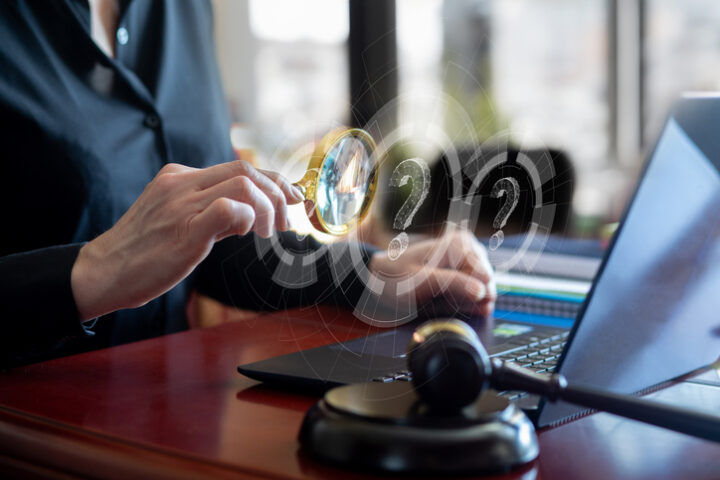If you’re ever involved in an automobile accident, consider filing a personal injury claim with the help of a reputable lawyer. With an attorney’s help, you may be able to receive maximum compensation. A maximized settlement will cover medical bills associated with the various types of personal injuries. However, talking to your lawyer and providing them with the right personal injury documents will be needed. Here are eight personal injury documents you’ll need to present to your attorney.
1. Accident Report
In the immediate aftermath of an accident, there will typically be an investigation launched into how the car accident happened. At the conclusion of this investigation, a formal report will be created to lay out the details of the accident.
The police will show up on the scene following a car accident and begin putting together a police report for it. This report will reveal what took place during the accident from the perspective of the police.
Your job is going to be to secure the accident report tied to your specific personal injury case by reaching out to the proper authorities. It’ll be one of the first personal injury documents you’ll need to pull out when talking to your lawyer.
2. Copies of Written Statements
In order to generate an accident report, the police will need to take written statements from those involved in it. They’ll use these written statements to outline exactly what happened during an accident.
In addition to obtaining a copy of your accident report, you should also have copies of these written statements for your lawyer. You should be able to secure them by reaching out to whoever was responsible for creating your accident report.
These written statements are going to help your lawyer evaluate the strength of your personal injury case. They’ll also be able to flesh out an accident report further by utilizing these statements.
3. Accident Photos and Videos
If you’re able to do it following an accident, you should always attempt to pull out your cell phone to take as many photos and videos as you can. These photos and videos could help you and your lawyer make a stronger personal injury case.
When you first sit down with a personal injury lawyer, you should show them all the photos and videos that you were able to gather. They’ll be very useful to your attorney as they work on putting together the strongest case possible for you.
You should be able to supply your personal injury lawyer with your own collection of photos and videos. But you might also want to ask around to see if any other people might have photos or videos that could work to your advantage.
4. Insurance Policies
Obtain the other party’s information on insurance policies. Your personal injury lawyer will need to know what the at-fault driver’s insurance covers. Your attorney will also want to know if you have been in communication with any insurers after the car accident. You should write down the details of any phone conversations you have with an insurance company and print out any emails that you’ve exchanged with them.
5. Medical Records
Following any type of accident, you should always head to a local hospital to get checked out. Even if you feel fine, you never know when you might start to feel the effects of getting into an accident. You might not see the symptoms associated with a condition like whiplash until 24 hours after an accident.
Once you get the right medical attention, you’ll be able to show medical records to your lawyer. They can utilize these records to assess your personal injury case and to see whether you might deserve compensation for your injuries.
6. Medical Bills
More often than not, people will file a personal injury case when an injury has resulted in mounting medical bills. These medical bills can add up quickly and put a person’s financial future in jeopardy in some cases.
If you’ve accumulated medical bills following a car accident, you should bring all of your bills along with you when meeting with a lawyer. These personal injury documents can help illustrate the toll an accident has taken on you.
7. Receipts
Medical bills might not be the only kinds of bills that you face after you’re in an accident. You may also need to pay for things like auto repair or fitness equipment for physical therapy.
Anytime you spend a single cent on anything related to your accident, you should ask for a receipt. You should then hang onto each of your receipts so that you can have your personal injury lawyer take a look at them.
8. Pay Records
Have the injuries that you sustained during an accident forced you to miss work? If they have, you could be entitled to collect compensatory damages tied to lost wages in certain instances.
To determine how much money you might be entitled to, a personal injury lawyer will need to look at your pay records and earnings. It’ll let them know how much money you’ve missed out on making due to your personal injuries.
Bring any pay stubs or other pay records that you have when meeting with an attorney. Reach out to your employer if you don’t have any hanging around so that they can send them in your direction.
Bring These Personal Injury Documents When You Visit Us
If you show up empty-handed when meeting with a personal injury lawyer, they won’t always be able to provide you with the help you need. You’ll have to bring all of these personal injury documents with you so that they can begin to build a personal injury case on your behalf.
We would love to provide you with the personal injury services you’ll need following an accident. Contact us today for more information on how we can assist you.



